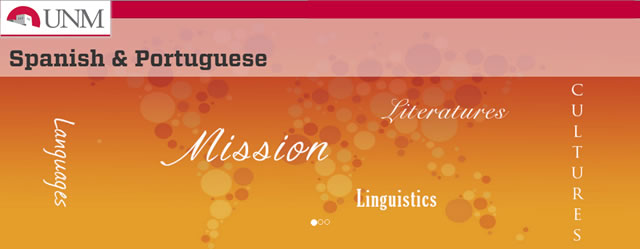
Spanish and Portuguese ETDs
Publication Date
2-1-2012
Abstract
Like many Mexican Liberal intellectuals, Ignacio Manuel Altamirano (b. Tixtla, Guerrero, 1834; d. San Remo, Italy, 1893) played a central role in defining the role that the mestizo—and, by force of circumstance, the Indian—would play in the formation of national identity after Mexicos independence from Spain. This dissertation examines Altamirano's literary and political works, as well as his personal correspondence, and his experiences as a soldier, educator, and politician, in order to understand how Altamirano, represented as an 'indio puro' who underwent the transformation to mestizo, exemplifies the link between Mexico's colonial past and its struggle to define its national identity. Past and current studies produced about Altamirano have failed to examine with a critical eye how his representation of the colonial and the contemporary, nineteenth-century Indian differs from what other sources reveal about the realities of indigenous life, both under Spanish rule and after Independence. By employing an interdisciplinary approach, using archival, primary, and secondary literary, theoretical, and historical sources, I examine how dominant groups have appropriated Mexico's indigenous culture throughout the years in order to support their varying political and social agendas. More importantly, I demonstrate that Altamirano, as a member of the ciudad letrada, formed part of the dominant group and not that of the subaltern. Various theories concerning mestizaje, assimilation, acculturation, and adaptation are examined and provide insight into how Altamirano's own life and literary production were manipulated to serve the official Liberal project of mestizaje, which, in many ways, proved to be more detrimental to the preservation of indigenous culture than 300 years of colonialism. The work of post-colonial theorists like Walter Mignolo demonstrates why Altamirano was unable to escape the colonial paradigm in which he had been formed; Mignolo's work also points to ways in which indigenous groups in the twenty-first century are now able to take control of the production of knowledge and choose what he terms the 'decolonial option. Thus, mestizaje as theory and reality come together in the life and works of Altamirano, who serves as a case study for the complex issues of Mexican identity and nationalism.
Degree Name
Spanish & Portuguese (PhD)
Level of Degree
Doctoral
Department Name
Spanish and Portuguese
First Committee Member (Chair)
Miguel Lopez
Second Committee Member
Tey Diana Rebolledo
Third Committee Member
Kathryn McKnight
Fourth Committee Member
Kimberle Lopez
Fifth Committee Member
Linda B. Hall, Sixth Committee Member: Sanchez, Joseph P.
Language
English
Keywords
Altamirano, Ignacio Manuel, 1834-1893--Criticism and interpretation, Nationalism and literature--Mexico, Indigenous peoples in literature
Document Type
Dissertation
Recommended Citation
Sanchez-Clark, Angelica. "Ignacio Manuel Altamirano's Journey from 'Indio Puro' to Cultural Mestizo: Indigenous Identity, Mestizaje, and Nationalism in Nineteenth-Century Mexico." (2012). https://digitalrepository.unm.edu/span_etds/30
Included in
European Languages and Societies Commons, Latin American Languages and Societies Commons
